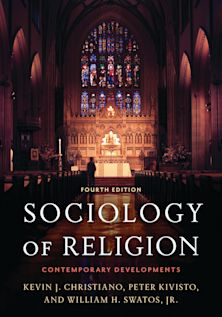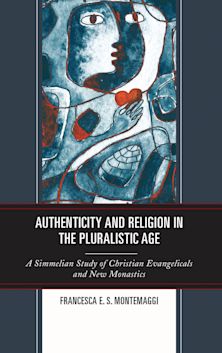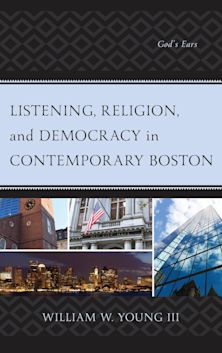- Home
- ACADEMIC
- Sociology
- Sociology of Religion
- The Legitimation Crisis of the Orthodox Church in the United States
The Legitimation Crisis of the Orthodox Church in the United States
From Assimilation to Incorporation
The Legitimation Crisis of the Orthodox Church in the United States
From Assimilation to Incorporation
You must sign in to add this item to your wishlist. Please sign in or create an account
Description
As immigration and religion remain important topics in contemporary social, political, and academic debates, The Legitimation Crisis of the Orthodox Church in the United States: From Assimilation to Incorporation analyzes the assimilation and incorporation of contemporary Eastern European Christian immigrants into American society by using the theory of the legitimation crisis. This book illustrates how these immigrants perceive the role and meaning of the Church and the extent to which they embrace the Americanization of this institution. Crisan explores the Orthodox Church’s willingness to respond to the changes in the composition of its immigrant churchgoers and their needs in a context where the Church must choose between promoting its traditional religious message and supporting the ethnic identity of its congregation.
Table of Contents
Part I: From Assimilation to Incorporation
Chapter 1: The Orthodox Church in the Literature
Chapter 2: A Brief History of the Orthodox Church in the United States
Chapter 3: Theoretical Background of Immigration to the United States
Part II: The Crisis of the Orthodox Church in the United States
Chapter 4: The New Eastern European Immigrants in the United States
Chapter 5: A Theory of the Orthodox Church Crises
Conclusion
Product details
| Published | 13 Sep 2019 |
|---|---|
| Format | Ebook (PDF) |
| Edition | 1st |
| Extent | 108 |
| ISBN | 9798216274087 |
| Imprint | Lexington Books |
| Publisher | Bloomsbury Publishing |
About the contributors
Reviews
-
The sociology of religion in the United States has not paid a great deal of attention to Orthodox Christianity—and this is particularly true in the area of religion and immigration. Cezara Crisan helps correct that oversight with an engaging examination of what she calls the crisis of legitimacy in current U.S. Orthodoxy. Orthodoxy has several different constituencies: descendants of Eastern European immigrants from the early 20th century, newer immigrants from Eastern Europe who arrived after the dissolution of the Soviet bloc, and U.S.-born converts to the faith. Each group has a different relationship to the historical connection between Orthodoxy and ethnicity, and varying beliefs about how the Church should adapt to contemporary cultural change. These two axes of change can be contentious, leading to potential crises within the faith. Using quantitative and qualitative data, Crisan examines dimensions of ethnicity, assimilation, and religious change in order to give an insightful portrait of Orthodoxy in the contemporary U.S.
Rhys Williams, Loyola University Chicago
-
Cezara Crisan’s The Legitimation Crisis of the Orthodox Church in the United States explores and reveals how recent immigration transformed the Orthodox Eastern European Church’s work in the United States in ways that induced a lack of confidence in its administrative functions and leadership among new immigrant parishioners. Crisan is a meticulous scholar whose evidence demonstrates how immigrants desire for incorporation—which no longer required the church to pursue the assimilation of immigrants—led to an administrative reorganization that prioritized the interests of its assimilated parishioners and U.S. converts for the sake of the church’s full-fledged integration into the United States’s “religious market.” Crisan argues that the Orthodox Church of America’s abandonment of its traditional role of aiding the social acclimation of immigrant parishioners insured they would not embrace and commit to the church as they did in their home countries. Crisan’s deft understanding of Orthodox Church in the U.S. and Eastern Europe painstakingly discloses how religion and religiosity are contingent upon and conditioned by sociopolitical dynamics and context.
Johnny E. Williams, Trinity College


































